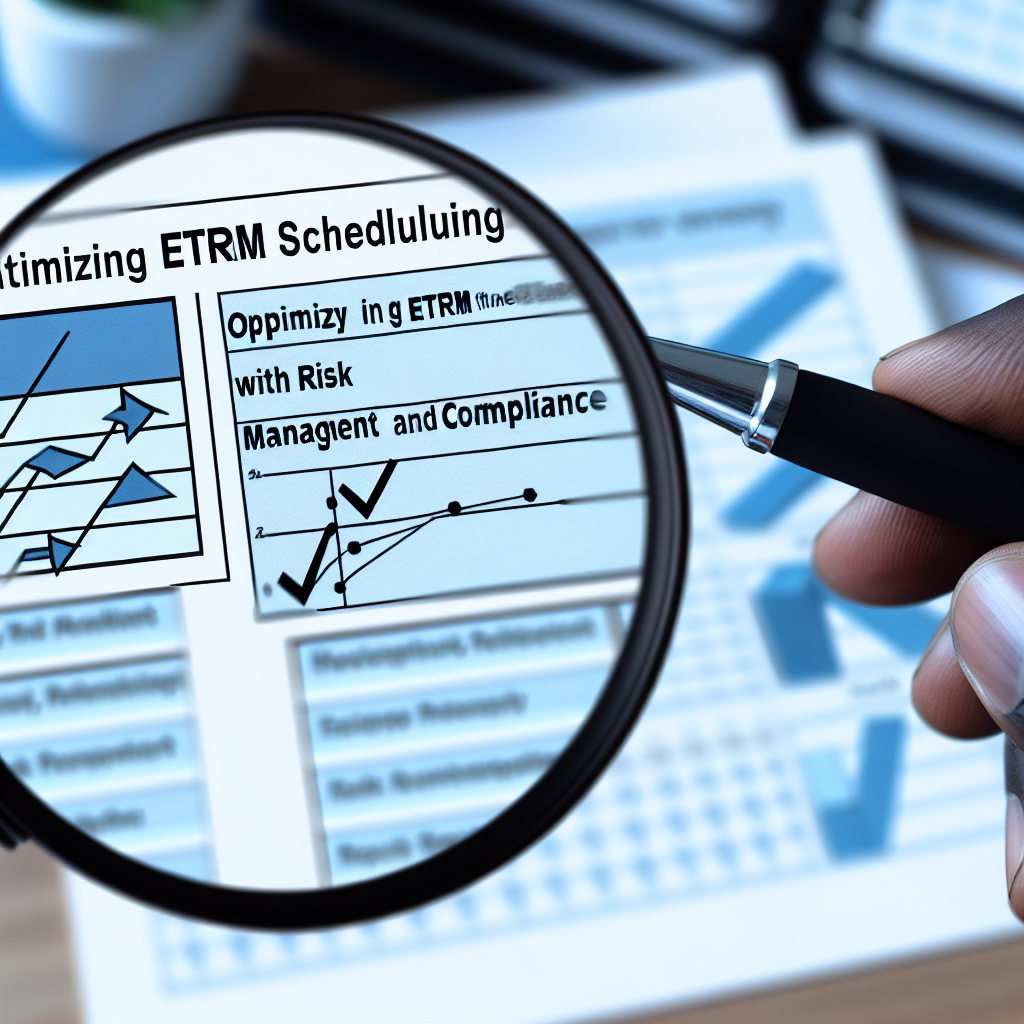Efficient **ETRM (Energy Trading and Risk Management) scheduling and logistics** are critical for energy companies navigating complex markets. Understanding **risk management**, **compliance**, and **advanced strategic topics** ensures optimal operations and regulatory adherence. This article explores essential aspects to optimize ETRM processes and address emerging challenges in the energy sector.
Integrating Risk Management and Compliance in ETRM Scheduling
In the highly volatile energy markets, **risk management** is the backbone of effective ETRM operations. Companies must develop sophisticated models to mitigate exposure to price fluctuations, supply disruptions, and regulatory changes. A comprehensive risk framework involves:
- Market Risk Analysis: Utilizing advanced analytics to predict price movements and hedge accordingly.
- Credit and Counterparty Risk: Establishing creditworthiness assessments and collateral requirements.
- Operational Risk Control: Ensuring logistical robustness and contingency planning to prevent supply chain disruptions.
Simultaneously, **compliance** plays a pivotal role, especially with evolving environmental regulations and market standards. Staying aligned with local and international policies requires integrated compliance modules within ETRM platforms, automated reporting, and real-time monitoring. This symbiosis of risk and compliance ensures not only legal adherence but also enhances credibility and operational resilience.
Advanced Topics: Strategic Optimization and Technology Integration
Beyond basic risk and compliance, modern ETRM systems leverage **advanced topics** such as AI-driven analytics, blockchain, and IoT for enhanced decision-making. These technologies enable companies to:
- Optimize Scheduling: Using real-time data and predictive algorithms to fine-tune logistics and trading strategies.
- Enhance Transparency and Security: Blockchain provides immutable transaction records, reducing fraud and improving audit trails.
- Improve Data Integration: IoT devices facilitate accurate monitoring of assets, leading to proactive maintenance and reduced downtimes.
Adopting these advanced strategies creates a competitive edge, mitigates emerging risks, and ensures compliance with increasingly complex regulatory frameworks. As technology accelerates, energy firms that incorporate these tools into their ETRM workflows will enjoy enhanced efficiency and resilience.
In summary, mastering **ETRM scheduling and logistics**, with a focus on **risk management, compliance**, and **advanced technological strategies**, is vital for energy companies striving for operational excellence. Integrating these elements ensures not only regulatory adherence and risk mitigation but also positions organizations ahead in a rapidly evolving energy landscape. Staying informed and innovative will secure long-term success.
